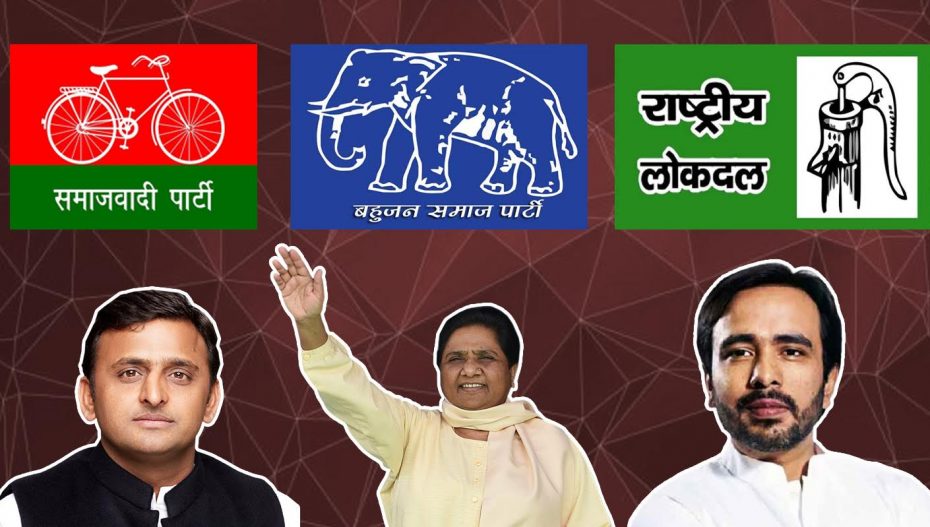Among the undercurrents surfacing in Uttar Pradesh politics just months before the 2022 assembly elections is one that could potentially transform political and social equations in the western region and adjoining Braj and Rohilkhand. Between them, this swath of land spans the Jat belt, the “holy land” of Mathura-Brindavan-Goverdhan, and Moradabad, Bareilly and Saharanpur. The Rashtriya Lok Dal (RLD), a party which its present leader Jayant Chaudhury inherited from his late father, Chaudhury Ajit Singh, has embarked on a serious move to reach out to the Dalits, who have become highly politicised after the arrival and success of the Bahujan Samaj Party (BSP) that recorded its initial gains in these parts. Although dictated purely by electoral considerations, the RLD’s project is nothing short of “radical”, given its history and legacy which allowed no space for Dalits in decades.
Perhaps, it was Jayant’s brief tryst with the BSP in 2019 that motivated him to realise the significance of the Dalit votes in electoral calculations. In the last Lok Sabha elections, the Samajwadi Party (SP), BSP and the RLD had a pact that was christened the “Mahagatbandhan” (Grand Alliance) and was projected to give the BJP a run for its money. In the end, the alchemy of Narendra Modi’s charisma and appeal, particularly for the poor, with Amit Shah’s hard-nosed groundwork trumped the “Grand Alliance’s” math. Even so, the anti-BJP Opposition improved upon its 2014 showing and won almost half of the seats in the Meerut, Moradabad and Saharanpur divisions. While the SP does not have much a base in Jat country, it has a following in Braj “bhoomi” and a very strong presence in Rohilkhand, the last because of the huge Muslim population. The BSP has an even presence, drawn largely from its leader Mayawati’s Jatav sub-caste that makes up the creamy layer of Dalits. While Mayawati proved her competence at transferring the Jatav votes to her allies, the RLD could not pull in the Jat votes to the expected measure because the Jats remained wedded to Hindutva and opted to go with the BJP. The Hindu-Muslim divide, pierced through by the 2013 Muzaffarnagar violence, stood where it was.

Now led by Prashant Kanojia, a journalist and editor of the “Bahujan Mag”, the RLD embarked on a two-month-long “Nyay yatra”, covering 13 districts, to demand justice for the family of the Hathras rape victim, permanent employment for sanitation workers and rigorous implementation of the law against manual scavenging. Kanojia was twice arrested and imprisoned by the Yogi Adityanath government for allegedly posting an “offending” tweet about the chief minister and for “insulting” Hindus in another. He has since joined the RLD.
It’s a reflection of the RLD’s failure to identify and nurture a Dalit leadership through all these years that it turned to Kanojia, a political neophyte, to fill the vacuum. But that’s not surprising given its past. Jayant’s grandfather, Chaudhary Charan Singh—who was a month-long Prime Minister during the chaotic Janata Party regime where he allowed himself to become a pawn in Indira Gandhi’s hands to upstage his predecessor Morarji Desai—had no place for Dalits in his electoral matrix. A victim of caste discrimination practised by the Brahmins, who never ate cooked food served in a Jat’s home, Charan Singh was devoid of empathy for Dalits. Indeed, once he empowered the Jats economically by scrupulously enforcing the Land Ceiling law and sliced away the large holdings inherited by the Brahmins and Rajputs, Jats became the dominant caste in west UP. They called the shots in the elections and deployed muscle and money to put down the backward castes to an extent but deny Dalits a place in voting. It was the emergence and rise of the BSP which ensured that for the first time Dalits freely exercised their franchise in most parts at least.
While the Jats made their peace with the backward castes, they still cannot come to terms with the existence of the empowered Dalits. An electoral compact cannot work without a context. Will the traditional Jat-Dalit antagonism vanish overnight?
The BSP will matter in these parts no matter how inactive Mayawati was for the past four years. She failed to take an unambiguous stand against the Adityanath regime’s omissions and commissions which makes her a half-hearted opponent of the BJP. The elephant in the room is Chandrashekhar Azad Ravana, the founder-president of the Bhim Army, who recently launched his Azad Samaj Party. Like Mayawati, he’s a Jatav who hopes to speak for the younger Dalits, fed up with the compromises the BSP repeatedly struck to stay in power. The SP and RLD hope to rope in Ravana in their coalition.












